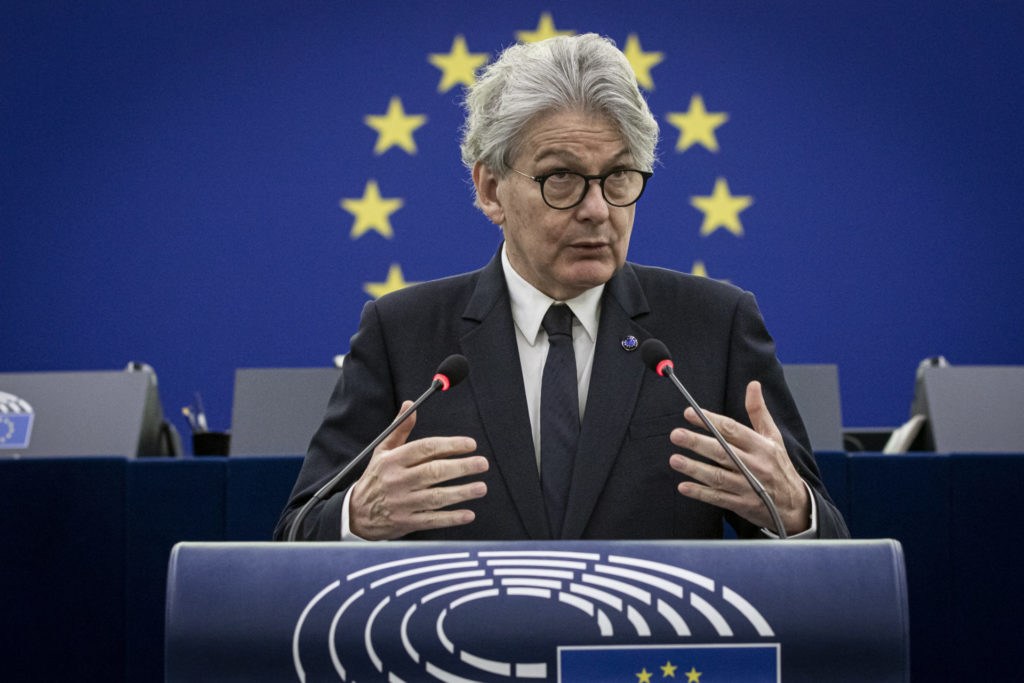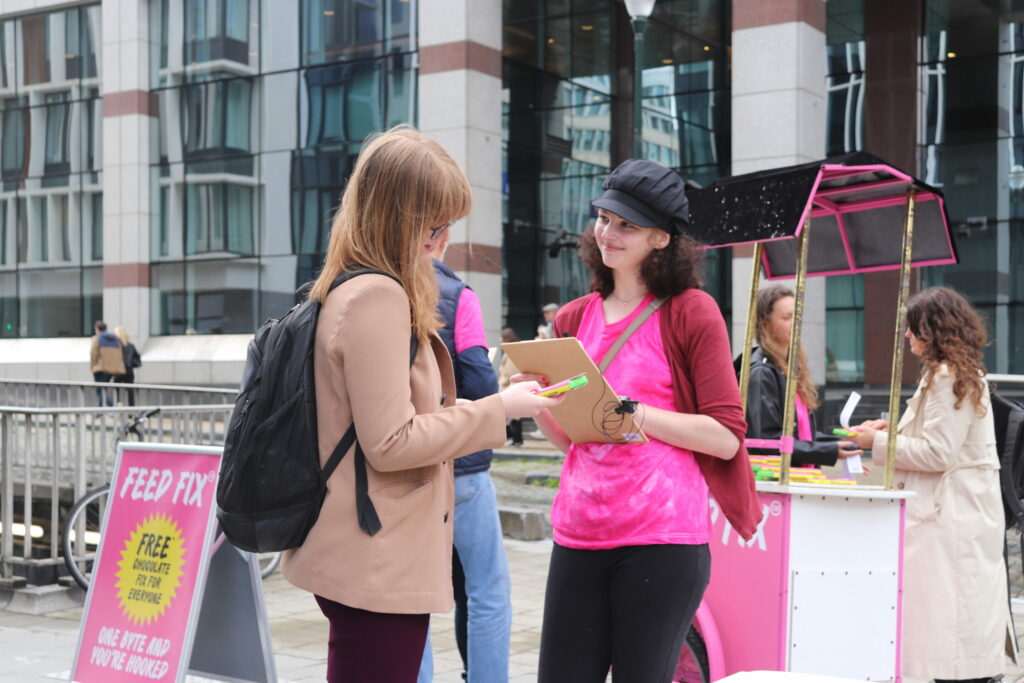The overwhelming majority of EU citizens want social media companies to turn off their behavioural profiling-based algorithms, and instead base feeds on the content that users decide they want to see – a pressing problem just weeks ahead of the European elections.
Nearly two-thirds (61%) of residents in France, Germany and Ireland want social media companies to stop "using behavioural profiling by default," and instead want their feeds to be based on the content that users themselves decide they want to see, shows data from YouGov.
"The recommender systems are amplifying and promoting harmful content because the way they are designed is to keep people's eyeballs on the screens as much as possible to maximise ad revenue," Tanya O’Carroll, Founder of People v. Big Tech, told The Brussels Times.
"They are designed to engage in rage and addict people, and we end up with the massive spread of disinformation in the run-up to the EU elections that no one has got a grip on," she said.
System blinking red
People v. Big Tech commissioned the poll in partnership with The London Story and Real Facebook Oversight Board. The results showed that EU residents believe social media platforms are "not doing enough" to prevent harmful content from being shown to users.
Additionally, 55% are not comfortable with "behavioural profiling" – the current default setting on all major social media platforms. "People can turn off this option, but they have to actively start looking for it. And unfortunately, we know that that is not how it works in practice."
With the election three weeks away, investigations are showing the system "blinking red," O'Carroll stressed. With disinformation and election hate speech proliferating across Europe by hostile foreign powers, "poll respondents clearly want platforms that are safe by default," said O’Carroll.
"The good news is that EU Commissioner Thierry Breton and EU leadership can still make it happen, and act to safeguard the election from algorithmic malfeasance," she emphasised.
However, the main problem is that the various measures being taken are not addressing the actual problem. "The engine of the virality of disinformation and harmful content is the companies' business model," O'Carroll said.
With the Digital Services Act (DSA), which was passed in 2023 and went fully into effect in 2024, the EU has wide-ranging authority to address algorithmic risks on social media, but O'Carroll denounced what the EU is doing now as "just some tweaking around the edges."
"The proceedings that the Commission has started are obviously very welcome but they are the beginning of a long process, which frankly, we do not have time for," she added. "There will be many exchanges and long back-and-forths with the platforms, but it will take time we do not have. With the EU elections around the corner, the DSA is in danger of becoming a paper tiger."
'Break the glass'
The EU has already launched an investigation into potential foreign interference with elections on Meta's platforms, but advocates are calling on Commissioner Breton to go further by turning off behavioural profiling in recommender systems by default, and introducing other "break the glass" measures to reduce the amplification of harmful content the week before and after the June elections.
"That would change everyone's social media feeds overnight, away from the toxic profiling version to something that we consider to be 'safe by default'," said O'Carroll.
When asked to what extent they were comfortable with behavioural profiling, 27% responded that they were "not at all," and 55% expressed significant discomfort. Ireland, which recently debated the merits of "safe by default," showed the strongest support for turning off behavioural profiling by default at 77%.
"The poll reflects an EU citizenry deeply concerned about the corrosive effects of social media, and uncomfortable with the ways algorithms target them to keep their attention," said Clara Maguire, Executive Director of The Citizens. "Social media giants know how to make their platforms safer, but refuse. We are calling on the EU to make the choice for them."

EU Commissioner Thierry Breton. Credit: EC
Together with the release of the poll, advocates today also launched a campaign to share a Spotify Playlist – titled 'Hey-Ya, Mr Thierry' – with Commissioner Breton, who has used Spotify playlists to communicate the impact of the DSA and other digital policies.
The message will be sent directly to the European Commission, with a "Feed Fix" food bike offering chocolates to passers-by – if they accept the "terms and conditions" presented on a faux receipt listing potential social media harms, showing the "real price" of social media.
"We know these measures work, because they have before. If you had a time machine and went back to the US Presidential election in 2020, you would find that everybody in the US was experiencing a different version of social media one week before and one week after," O'Carroll said.
This was because of the so-called "break the glass" measures in place. "These are changes to these companies' algorithms which they know de-amplify hate speech and disinformation – but at the expense of engagement."
Poisoning the minds of voters
These measures were put in place successfully before and after November 2020, but were lifted again a little later. "Then, on 6 January 2021, the Washington insurrection happened," she said, referring to the attack on the US Capital Building in Washington DC by thousands of supporters of then-President Donald Trump, two months after his election defeat. "And it was all downhill from there."
That is because engagement is these companies' business model, but O'Carroll stressed that the algorithms creating this engagement should never be the default.
"Therefore, we have to trust in EU regulators and lawmakers to do what is right for European citizens and democracies, not for Facebook's business model." If these "break the glass" measures were implemented overnight, she argued that they would change everybody's social media experience.
Related News
- EU investigating TikTok Lite for possible DSA breaches
- EU probes Meta over disinformation just weeks before elections
- 'Rabbit hole effect': European Commission opens formal investigation into TikTok
People would experience a healthier version of social media, while companies such as Meta would still be incredibly profitable, explained O'Carroll. "Yes, they would lose some engagement, but they would still have a very profitable business without poisoning the minds of European voters."
The upcoming elections will become the first real test for the DSA. "But we have not yet seen the European Commission be willing to take strict measures that would make real changes – and I fear that things are even worse in these elections than in the past. We really expect European leaders to step up and use the power that they have."

